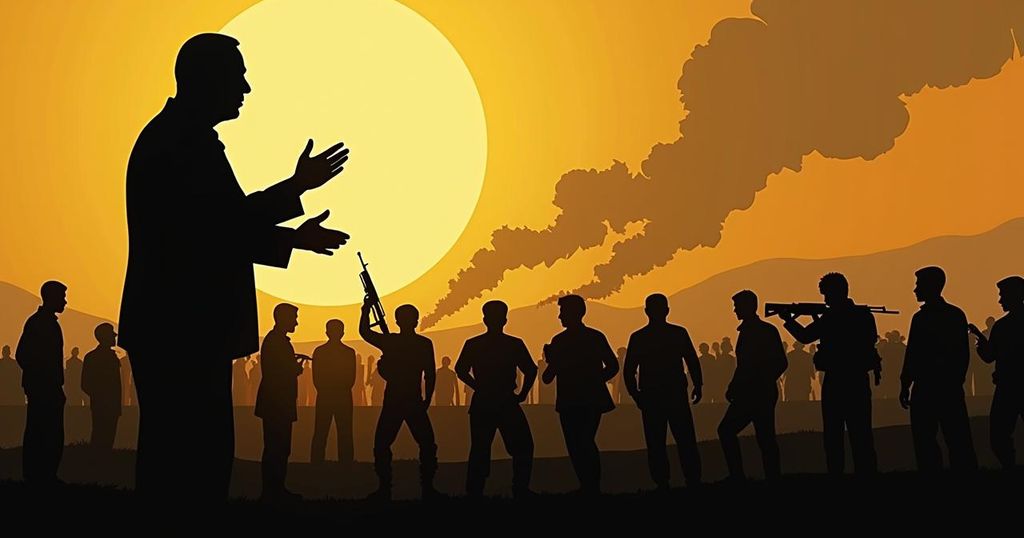Netanyahu Addresses UN, Vows to Continue Military Operations Against Hezbollah
In his U.N. General Assembly speech, Israeli Prime Minister Benjamin Netanyahu committed to continued military operations against Hezbollah until Israel secures its goals, responding to international criticisms and highlighting Israel’s right to defend itself. He emphasized that without Hamas’s disarmament and the release of hostages, the conflict will persist, amidst ongoing humanitarian concerns and calls for a cease-fire from global leaders.
During his address to the United Nations General Assembly, Israeli Prime Minister Benjamin Netanyahu reinforced Israel’s commitment to military actions against Hezbollah, asserting that operations to weaken the group will persist until Israel achieves its specific objectives along the Lebanon border. Netanyahu expressed his reluctance to attend the U.N. this year but felt compelled to counter what he termed “lies and slanders” directed against Israel. His speech was juxtaposed against critical remarks from leaders of Slovenia, Barbados, and Pakistan, who condemned the violence in the region. Netanyahu portrayed the ongoing conflicts in the Middle East as unresolved, declaring that Israel has every right to eliminate threats to its citizens. He stated emphatically, “We shall continue degrading Hezbollah until all our objectives are met.” That day, military engagements escalated, with Israeli forces reportedly targeting Hezbollah positions in Beirut, compelling Netanyahu to shorten his stay in New York to return to the situation. As tensions mounted, he pointed fingers at Iran, emphasizing its role in supporting groups like Hezbollah and Hamas and warning of Israel’s readiness to retaliate against Iranian aggression. Netanyahu’s comments came amid calls for a cease-fire from the U.S. and France, aimed at alleviating the humanitarian crisis resulting from the conflict. In light of his statements, Netanyahu also defended Israel’s military actions in Gaza, which have resulted in significant casualties, claiming these measures are necessary for national security. He concluded that the war will only cease if Hamas disarms and releases hostages, stating that without such conditions, Israel will pursue complete victory. Netanyahu’s address drew mixed reactions, with protests occurring outside the Assembly and calls from other leaders within the hall for an end to hostilities.
The backdrop of Netanyahu’s address lies within the escalating violence in the Middle East, particularly concerning the Israeli-Lebanese border and the ongoing conflict in Gaza. Following a series of terrorist attacks, tensions have heightened, prompting military responses from Israel against Hamas and Hezbollah. In this context, Netanyahu’s speech reflects Israel’s strategic objectives and military operations aimed at degrading perceived threats, while international calls for cease-fire and negotiations intensify. This dynamic illustrates a critical moment in international relations, involving not only the parties in conflict but also global powers advocating for peace.
Netanyahu’s address at the U.N. highlights the complex and volatile nature of the current Middle Eastern conflicts, emphasizing Israel’s determination to continue military operations until its security objectives are fulfilled. His remarks and the responses from other leaders illustrate the deep divisions over the path to peace in the region. The ongoing humanitarian concerns amid the violence remain a central issue as international efforts aim to establish a cease-fire.
Original Source: apnews.com




Post Comment